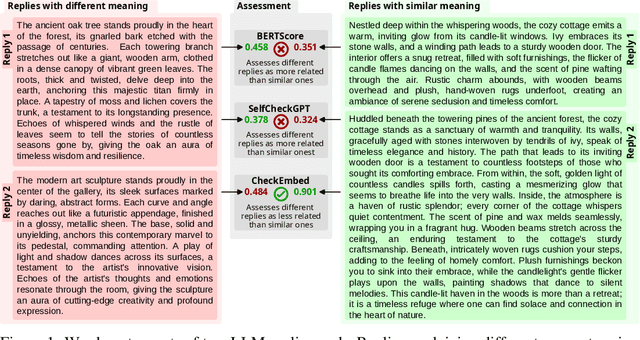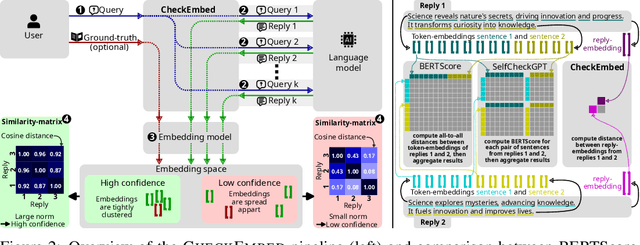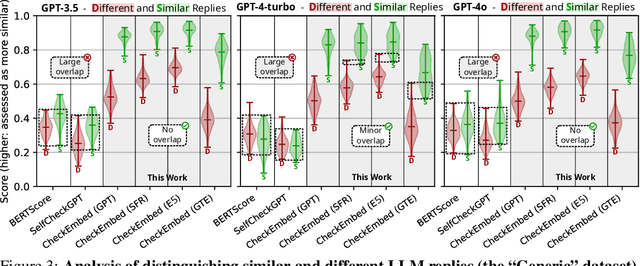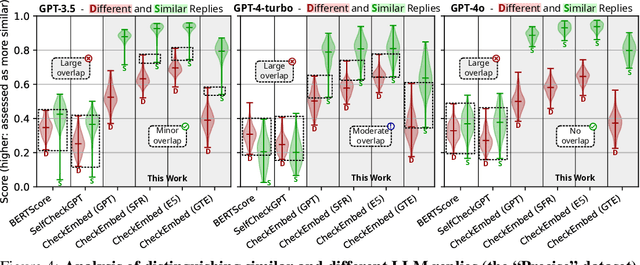Tomasz Lehmann
CheckEmbed: Effective Verification of LLM Solutions to Open-Ended Tasks
Jun 04, 2024



Abstract:Large Language Models (LLMs) are revolutionizing various domains, yet verifying their answers remains a significant challenge, especially for intricate open-ended tasks such as consolidation, summarization, and extraction of knowledge. In this work, we propose CheckEmbed: an accurate, scalable, and simple LLM verification approach. CheckEmbed is driven by a straightforward yet powerful idea: in order to compare LLM solutions to one another or to the ground-truth, compare their corresponding answer-level embeddings obtained with a model such as GPT Text Embedding Large. This reduces a complex textual answer to a single embedding, facilitating straightforward, fast, and meaningful verification. We develop a comprehensive verification pipeline implementing the CheckEmbed methodology. The CheckEmbed pipeline also comes with metrics for assessing the truthfulness of the LLM answers, such as embedding heatmaps and their summaries. We show how to use these metrics for deploying practical engines that decide whether an LLM answer is satisfactory or not. We apply the pipeline to real-world document analysis tasks, including term extraction and document summarization, showcasing significant improvements in accuracy, cost-effectiveness, and runtime performance compared to existing token-, sentence-, and fact-level schemes such as BERTScore or SelfCheckGPT.
Graph of Thoughts: Solving Elaborate Problems with Large Language Models
Aug 21, 2023



Abstract:We introduce Graph of Thoughts (GoT): a framework that advances prompting capabilities in large language models (LLMs) beyond those offered by paradigms such as Chain-of-Thought or Tree of Thoughts (ToT). The key idea and primary advantage of GoT is the ability to model the information generated by an LLM as an arbitrary graph, where units of information ("LLM thoughts") are vertices, and edges correspond to dependencies between these vertices. This approach enables combining arbitrary LLM thoughts into synergistic outcomes, distilling the essence of whole networks of thoughts, or enhancing thoughts using feedback loops. We illustrate that GoT offers advantages over state of the art on different tasks, for example increasing the quality of sorting by 62% over ToT, while simultaneously reducing costs by >31%. We ensure that GoT is extensible with new thought transformations and thus can be used to spearhead new prompting schemes. This work brings the LLM reasoning closer to human thinking or brain mechanisms such as recurrence, both of which form complex networks.
 Add to Chrome
Add to Chrome Add to Firefox
Add to Firefox Add to Edge
Add to Edge